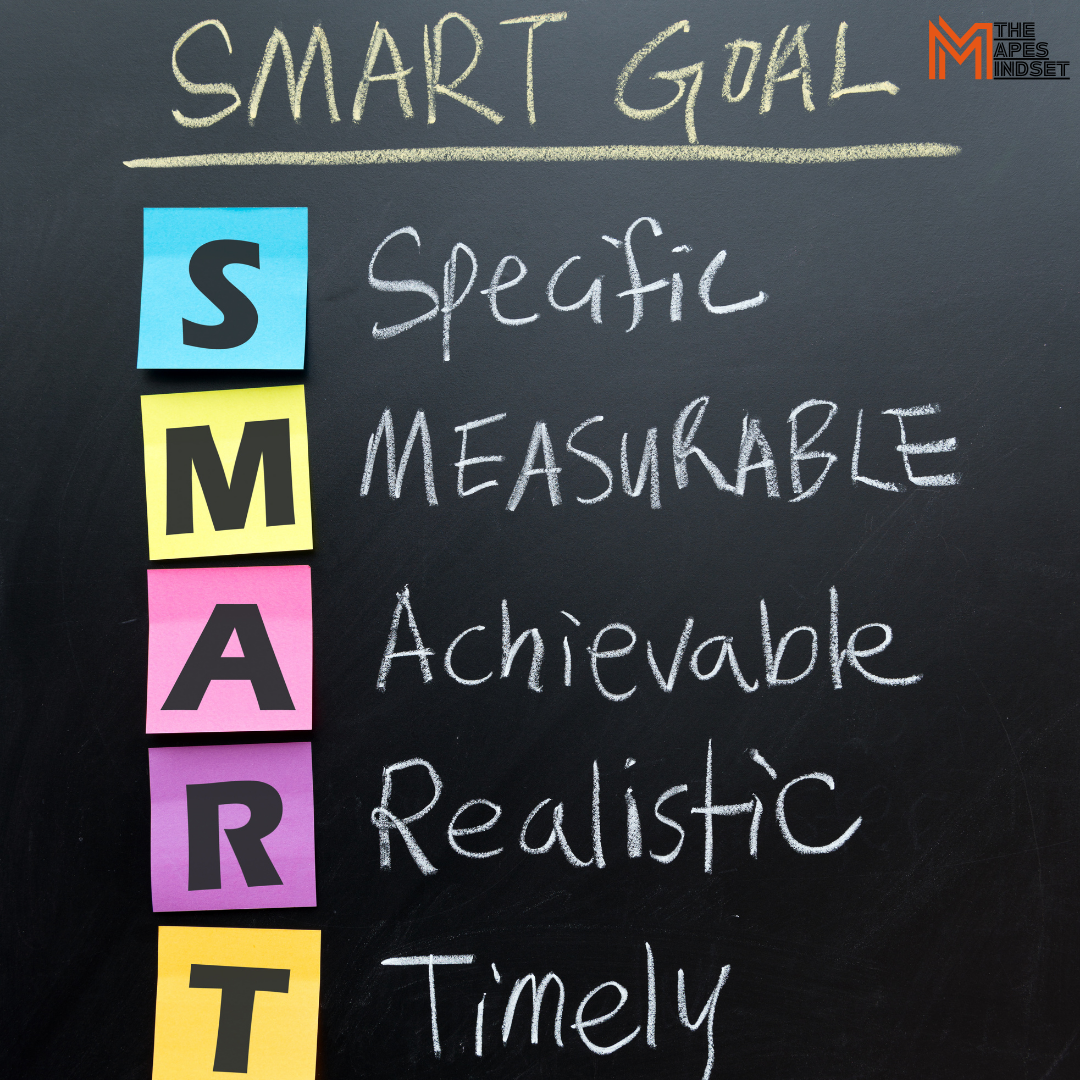Setting goals is a fundamental part of personal and professional growth. However, simply setting any goal isn’t enough. To truly achieve success, your goals need to be Specific, Measurable, Achievable, Relevant, and Time-bound (SMART). In this article, we’ll explore how to set and achieve SMART goals effectively, with insights from the coaching experts at The Mapes Mindset.
What Are SMART Goals?
SMART is an acronym that stands for Specific, Measurable, Achievable, Relevant, and Time-bound. This framework helps ensure that your goals are clear and reachable. Let’s break down each component:
- Specific: Your goal should be clear and specific. Ambiguous goals can lead to confusion and lack of direction. Ask yourself what you want to achieve, why it is important, and how you plan to accomplish it.
- Measurable: Include precise criteria to track your progress. This helps you stay motivated and recognize when you have achieved your goal.
- Achievable: While it’s good to challenge yourself, your goal should still be attainable. Consider the resources and constraints you have.
- Relevant: Your goal should align with your broader objectives and values. It should be worthwhile and pertinent to your overall plan.
- Time-bound: Set a deadline to create a sense of urgency. A timeframe helps prioritize your tasks and maintain focus.
Steps to Set SMART Goals
- Define Your Goal Begin by writing down what you want to achieve. Ensure it is specific and clear. For example, instead of saying “I want to be healthier,” say “I want to lose 10 pounds in three months by following a balanced diet and exercising regularly.”
- Break It Down Divide your goal into smaller, manageable tasks. This makes the process less overwhelming and allows you to track your progress more effectively.
- Set Milestones Establish interim targets to keep yourself on track. These milestones act as checkpoints, ensuring you are moving in the right direction.
- Identify Resources Determine what you need to achieve your goal. This could include tools, skills, or support from others.
- Create a Timeline Set a realistic deadline for your goal and the milestones within it. This helps maintain focus and momentum.

Tips for Achieving Goals
- Stay Committed Commitment is crucial for achieving any goal. Remind yourself of the reasons why the goal is important and stay dedicated to the process.
- Seek Accountability Share your goals with someone you trust, such as a coach, friend, or family member. Their support and encouragement can be invaluable.
- Review and Adjust Regularly review your progress and be willing to adjust your plan if necessary. Flexibility can help you overcome unexpected challenges.
- Celebrate Successes Acknowledge and celebrate your achievements, no matter how small. This positive reinforcement keeps you motivated.
Examples of SMART Goals
- Career: “I want to earn a promotion to a managerial position within the next year by completing a leadership training program and consistently exceeding my performance targets.”
- Health: “I aim to run a marathon in six months by following a structured training plan and maintaining a balanced diet.”
- Education: “I will improve my public speaking skills by attending a workshop and practicing at least once a week for the next three months.”
Conclusion
Setting and achieving SMART goals is a powerful strategy for personal and professional development. By making your goals Specific, Measurable, Achievable, Relevant, and Time-bound, you can create a clear roadmap to success. Remember to stay committed, seek accountability, review your progress, and celebrate your achievements. For more personalized guidance and support in your goal-setting journey, join our Facebook group, sign up for a free discovery session, or subscribe to our newsletter at The Mapes Mindset.






